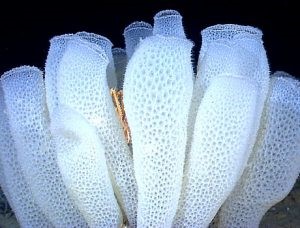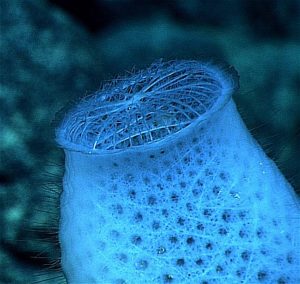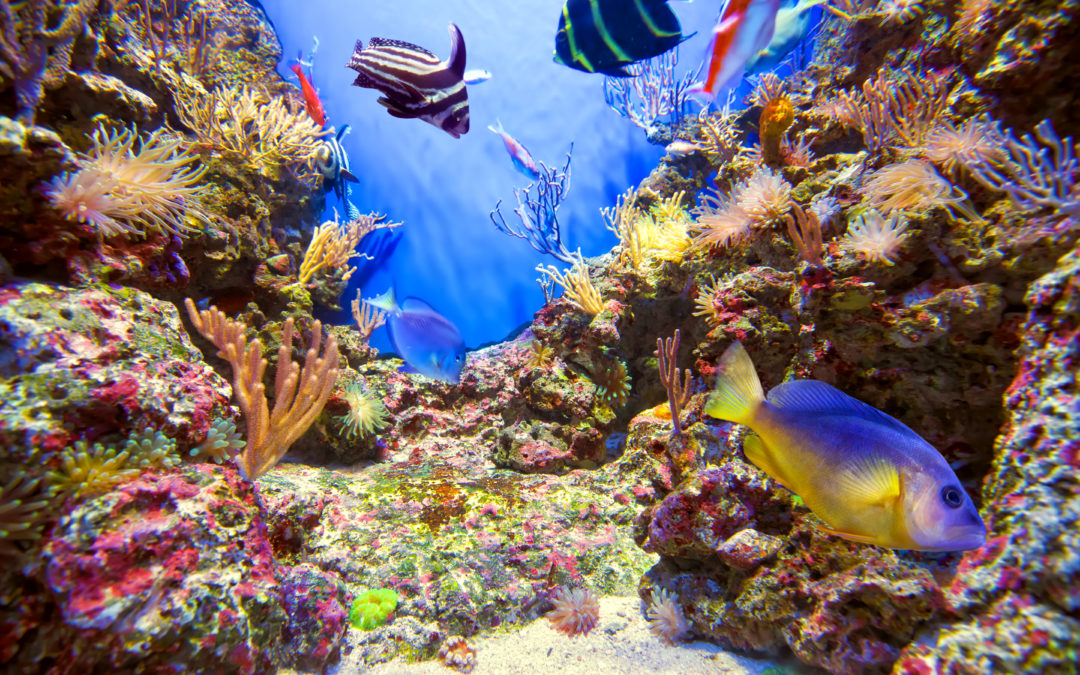Hello Venus Flower Basket Glass Sponge (better known as euplectella aspergillum). While you may not be on a first name basis with this glittery deep-sea animal (a sponge to be exact), there are lessons to be learned from this creature that translate to today’s work setting.
A Little Biology Before Humanology
Before we make the translation to working under pressure in our work world, it is worth a few seconds to first visit marine biology. Here goes – this little sponge critter extracts chemical compounds from seawater and converts it into silica, forming an elaborate skeleton of glass fibers. In simple terms, it creates a cylindrical glass-like tube which mimics the shape of a vase (extraordinary when you think about it).
Stay with me here before we jump ahead to how this story applies to work today. These sponge skeletons are the topic of extensive research around firmness and yield strength because they are comprised of complex geometric patterns. In contrast, an aluminum tube of equal length, thickness, and radius has about 1/100th the durability of the Venus Flower Basket, making these tough, but delicate looking creatures quite magnificent.
When it comes to location, these curious creatures can be found in various oceans but are found predominantly at great depths (20,000 to 30,000 feet) where the water is frigid, and the level of silica is high. In truth, it is these ocean depths (think roughly 2,000 times greater pressure than at sea level) which enables the Venus Flower Basket to thrive.
The Odd Couple
Also fascinating is that this glass sponge enjoys a symbiotic relationship with a certain type of shrimp. According to some Asian traditions, dried Venus Flower Baskets have been given as wedding gifts because the sponge provides a home to two small shrimp (one male and one female), who all live happily ever after – a role model if ever there was one. The papa and the mama shrimp do their mating thing, which inevitably ends up with baby shrimp, whom (at a very early age and contrary to human offspring) leave home to find a Venus Flower Basket all their own. According to biologists, the shrimp cleans the inside of the basket, while in true cooperative fashion, the sponge provides nourishment for the shrimp by trapping food particles in its tissues.

There is more to be gleaned here than some shrimp-based-oceanic-trivia. Nature is giving us lessons on how to work beautifully, even under pressure.
Pressure Can be the Catalyst for Great Productivity
The Venus Sponge flourishes at ocean depths where the water pressure crushes other life forms. Translated to the human work setting? Seek out constructive stress. I am not talking about the kind of stress that leaves you, or your team burnt out to the point of anxiety. Rather, I am suggesting that there is something profoundly valuable in the kind of positive tension that pushes you (and your team) toward better problem-solving, more agile thinking and diverse ideation.

Building Something Extraordinary Requires Tremendous Detail
The thousands of glassy fibers that attach the sponge to the ocean floor are as thin as human hair with each laid down one at a time. This acts as a suitable reminder for each of us toiling in the office or on the production floor. It serves to remember that perseverance is considered the chief ingredient for delivering the seemingly impossible. If a sea sponge doesn’t inspire you on this note, consider Thomas Edison (giving credit to the many who worked with him) and the 1,000 unsuccessful attempts at inventing a light bulb before that historical eureka moment was achieved.
Meaningful work is not the output of a one-day event. In other words, the Venus Flower Basket is not called the Ugly Glass Glob. Building an elegant and complex structure (from glass fibers) requires a daily commitment to meticulous and painstaking effort. The same is true in the workplace. Don’t settle for Ugly-Glass-Glob status. Rather, persevere under pressure to meticulously, and thoughtfully, produce consistent (and therefore ultimately fabulous) results.
Forging Strong Workplace Relationships with Cross-Functional Departments Can Yield a Symbiotic Relationship
The glass sponge relies on shrimp (an entirely different species similar to your colleagues down the hall). But it is this very fact that shrimp are completely different that allows the sponge to build its remarkable glass skeleton. A Venus Sponge does not clean itself, nor does it tidy up the sponge next door. It needs help. As do you. You, and your team, are probably missing a needed skill set (or perspective) which can likely be found in a different department or team member within your organization. What do you need? What can you offer your workplace partners in exchange? Symbiotic relationships can be found in today’s new world of work. In fact, to thrive in an age of global change, one must seek out as many mutually beneficial relationships with different people (or groups) as possible. And, even though, working with others who differ from you may cause a bit of discomfort, there is something to be valued in the exchange. Diversity of thought (the backbone of what if) is one such result. Persevering under challenging circumstances may be wearisome, but the output can yield magnificent results – just like the Venus Flower Basket.
Nature-inspired innovation. It doesn’t get better than that.
The above ideas are prompted by work done with the world-famous San Diego Zoo and their biomimicry endeavors.

